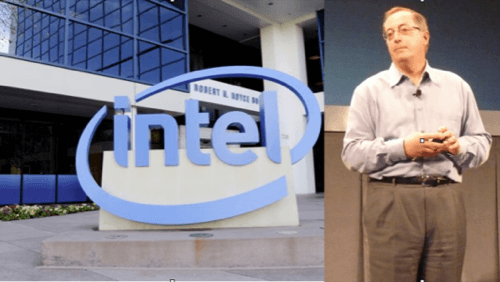
After more than 40 years of working with the same company, Intel CEO Paul Otellini is set to retire in May 2013. He will leave behind a market leader struggling to adapt to an increasingly mobile world, a diverse ARM-processor ecosystem and a main flagship product of Windows 8.
Put in that context, Otellini’s retirement may not exactly mark the zenith of Intel’s dominance in semiconductors, but there’s no denying that the 62-year-old’s eight year tenure has been a good one.
Numbers Don’t Lie
As far as the books go, Intel has pulled in $107 billion in cash with Otellini at the helm, and annual revenue went up from $39 billion to $54 billion. Paid dividends under his leadership are at $23.5 billion. Otellini has managed to pull this off while dealing with a very competitive landscape, in the form of Advanced Micro Devices on the PC/server platform and ARM-licensed chips in the rapidly growing mobile market.
That market may pose one of the largest challenges for Intel moving forward. Even as Intel keeps bringing out ever more powerful and robust chips, it hasn’t found a silicon bullet that can hit the mobile target. Small mobile devices could prove to be a big problem for Intel’s future sales in a world where PC sales seem to be diminishing in the face of mobile device popularity – and where fragmented ARM vendors finally seem to be getting their collective acts together to work on server-platform solutions.
If low-power ARM-based devices manage to take off, the demand could be strong, particularly since low power means less electricity and cooling costs.
Betting On Windows 8
And then there’s Windows 8, which Otellini himself was reported to have dissed as “unfinished” at a company meeting in Taiwan back in September. Intel very quickly denied those comments, but Otellini’s frustrations with Windows 8 and the timing of its release for the 2012 holiday shipping season resonated with a lot of people in the industry who have had similar misgivings.
For Intel, much depends on the success or failure of Windows 8, regardless of the fact that it’s Microsoft’s product. Windows devices represent a very big chunk of Intel’s annual revenue. Struggling Windows 8 sales would translates to serious damage to Intel’s bottom line.
With PC sales apparently in decline, mobile dominance still unobtained and the possibility of new competition in the server arena, Intel will need strong leadership in the days ahead if it’s to continue Otellini’s legacy of success.
Image courtesy of Lyao / Shutterstock and Tumbenhaur via Wikimedia Commons.

















